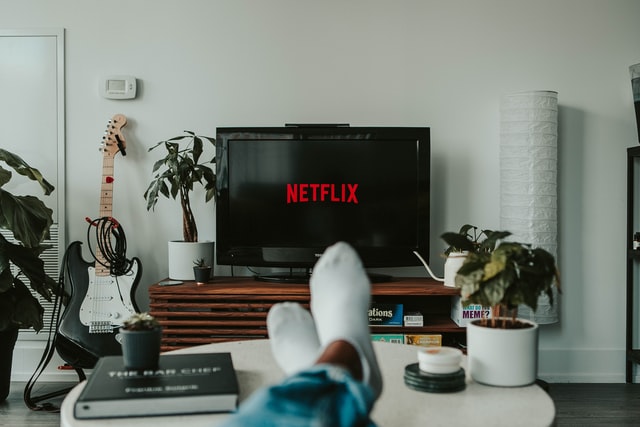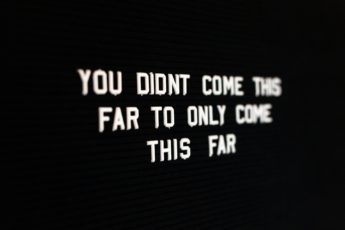The other night I watched this movie called “The Platform” on Netflix as I binge-ate half of a large BBQ Chicken Pizza and over half of the container of Cinnamon Pull-a-parts. If you’ve seen “The Platform”, you can imagine you would lose your appetite pretty quick. As I sat hovering over my food, shoveling pull-a-parts into my mouth even before finishing the last bite, I had an epiphany….I’m being wasteful. I wasn’t hungry anymore. I was eating for the sake of eating. I was eating because I was telling myself that it would be a long time before I ate like this again. I was eating because I was stressed and wanted quick relief. I was eating because it tasted sooooo good. I was eating because I didn’t want anyone else to eat the food that I determined was mine. I was eating…I was overeating.
“The Platform” is a political horror film that, from my interpretation, is a movie that examines the effects of capitalism and begs the question of who initiates change, the people at the top making decisions for all or the people at the bottom making decisions primarily for themselves. I won’t tell you the whole movie…no spoilers here. But this movie really had me thinking about my own contribution to inequality and how simply overeating aids in issues of world hunger. I’m not sure that was the point of the movie, but as I binged on my pizza and pull-a-parts, I started to think about this. I rationalized overeating as much as people in the movie did.
If you’re reading this post, I’m assuming that you have experienced a time when you have binge-ate. I’m actually going to make a wild assumption and say that binge-eating is a recurring issue for you and you feel like shit afterwards. Trust me, you are not alone. Many of my clients and I have struggled with binge-eating. Binge-eating has less to do with hunger and more to do with mental and emotional craving. Addressing hunger is, for the most part, easy to deal with; but dealing with our mental and emotional well-being is a bit harder and takes more work. So be aware of this: the habit of binge-eating will not change overnight…it will take work over time. Check out these tips to work on your binge-eating (or other binging habits).
Binge-eating is tied to emotional and mental well-being. Just as you need to exercise and eat right to maintain your physical health, you also need to strengthen coping skills, possibly develop new ones, and build resilience. And just as sometimes, you need to seek out assistance with physical health concerns through a doctor, personal trainer, and/or registered dietician, you may also need to seek out assistance with emotional and mental health concerns though a therapist, psychiatrist, or psychologist. Seeking out a professional in the mental health field can help you identify current coping methods, overcome obstacles, and develop/strengthen your current emotional and mental fitness. Having trauma, a mental health diagnosis, and/or current situational plateaus doesn’t make you unhealthy; failing to use healthy coping methods, however, can lead to health issues. This is the first tip because I think it’s the most important.
I know I said that binge eating has more to do with emotional and mental well-being than it does that actual feeling of hunger, however, hunger can be a trigger for many. Sometimes, life gets so busy that you skip meals and then end up feeling like you are starving at the end of the day and then you end up telling yourself it is okay for you to eat a ton of food to make up for the meals you missed. Or sometimes, you forgot the lunch you meal-prepped and have to go out to eat so you tell yourself that you might as well eat outside of your nutrition plan because you’re paying for the food or “there’s nothing healthy I like to eat here” or whatever other rationalization you use. All this comes down to planning ahead. Meal prepping is helpful. Having pre-portioned snacks available. Planning social events and eating a snack prior to social events that you know will have lots of food. You have to set your own schedule and create your own boundaries with food. But you also need to be flexible and remember that things don’t always go to plan so know what you will do if things go off plan and how you will deal with that.
Understanding consequences not only helps with rational decision making and putting things into perspective, it also helps you understand your motivations. There are both positive and negative consequences to over-eating. Let’s review the negatives first. While reading this, try to think of your personal consequences as what might be a negative to one person may not be to another.
Negative consequences can be broken down into two separate categories: those that naturally occur and those that are imposed. Natural consequences would be feelings and physiological functions. Guilt, depression, and lack of motivation are examples of some feelings that naturally occur after binge-eating; while feeling sick, tired, and gaining weight would be examples of physiological functions. These consequences are not what you or anyone else imposes. Because the behavior occurred, they occurred.
Now, you also have negative consequences that you or others impose. A common consequence that people self-impose after binge-eating is shame. They tell themselves that they are not good enough. Some other common self-imposed consequences would be giving up for the week and starting new next week or going on a super strict diet by completely cutting out certain foods. These are examples of unhealthier ways of responding to your binge-eating and tend to encourage the cycle to continue. However, there are self-imposed consequences you can use that are healthy and beneficial. (You can read more about these healthy alternatives in the Create a Healthy Relationship with Food blogs.)
Before we get into the positive consequences, take a quick minute and write down the negative consequences you experience after binge-eating.
Now, let’s talk a bit about the positive consequences to binge-eating. Yes, there are positives. If there weren’t, you wouldn’t do it. When you know the benefits of an unhealthy behavior, you can find alternative behaviors to gain these same benefits while minimizing the negative consequences. So again, there are naturally occurring positive consequences and there are also imposed positive consequences. Some examples of naturally occurring positive consequences are hunger satisfaction and the release of dopamine (“Reward.” National Eating Disorders Association. N.p.,22 Aug. 2019. Web. 02 Apr. 2020.). One of the biggest self-imposed positive consequences I can think of is giving yourself recognition for work that you have done. Many people use food as a reward system, which we talk about a bit more below. The ability to recognize accomplishments and reward ourselves is important.
Take a moment and write down the positive benefits.
Now that you know the positives and negatives, ask yourself “What are some healthy ways that I can get these benefits while minimizing the negative costs?” Create a list of at least 5 alternate behaviors.
Rationalizations. In the first paragraph of this post, I went through some of my rationalizations. For me, the biggest thought that I used to justify overeating is “I’m about to go on a cut so I need to eat as much as I can now.” Understand your own rationalizations. It’s crazy how simply being aware of these thoughts helps you stop and think, be less impulsive, and make more conscious and mindful decisions.
If you are finding it difficult to identify your rationalizations, try this. Think of the last time you binge-ate. What was going on? Who were you with? Where were you at? Be as detailed as possible in describing the situation leading up to this binge-eating event. Now, what were some thoughts going through your head. Pay special attention to the thoughts that gave you permission to binge-eat. I like to think of this as like the cartoons where an angel is on one shoulder and a devil is on the other. The angel is probably saying “you’re full. You should stop eating.” but the devil is saying what? List these thoughts down. These are your trigger thoughts and rationalizations.
Now that you are aware of them, you can think of some replacement thoughts to combat those trigger thoughts in the future.
Example:
My trigger thought- ““I’m about to go on a cut so I need to eat as much as I can now.”
Replacement thought- “I can eat this food in moderation while I am cutting. It’ll make me feel like shit afterwards if I over-eat today.”
Rationalizations are not the only triggers. Pictures of food, the smell of food, the feeling of stress, the feeling of happiness, and more can all be triggers as well. You will continue to find triggers and find different ways of dealing with those.
As mentioned above, food is often used in our reward systems or for our celebrations of milestones, holidays, and accomplishments. This, in itself, is not a negative thing; however, often times, we tend to hyper focus on the food aspect rather than the meaning of the event which leads us to over-eating. I think food is a good reward, but it is not the only reward. If right now, your only reward is a “cheat meal” for a successful weight loss or the only way you know how to celebrate Thanksgiving is by eating as much as you can, then it is important to take time to develop a list of rewards and ways to celebrate. This could be something active like going for a hike, something relaxing like getting a massage or watching tv, something social like going to a concert with friends, or even something materialistic like getting yourself those shoes you want.
You did overeat and you shouldn’t have. That guilt should be felt. That is the natural consequence of a behavior that is unhealthy for you. Embrace that feeling, but understand that a behavior does not define the totality of everything you are. You fucked up, but you aren’t a fuck-up. Okay.,,,Now what are you going to do to prevent yourself from fucking up again? It’s not just about the eating and your physical fitness goals. This is about your mental and emotional fitness. To achieve your physical fitness goals, you cannot ignore your mental and emotional fitness. So take those feelings and create a S.M.A.R.T. goal that pertains to your mental and/or emotional needs. Create an alternative for the eating. What will you do the next time you are stressed out because of work?
- During social events, especially those with food, focus on the social aspect. Play board games or get outside and play some football. Talk about life. Make it about bonding.
- Portion out your food ahead of time. If you get a big bag of chips or popcorn, portion it out ahead of time so you don’t mindlessly eat it all. Box up some of you food at the restaurant before you start eating.
- Take a breath. Put down your utensil. Take a moment to relax and be in the moment between each bite.
- Wondering if you are full or not? Walk away from the food and give yourself five minutes to decide.
- Follow a nutrition plan that doesn’t feel too restrictive. Read more about this in “Choosing the Right Nutrition Plan”.
I’m going to leave you guys off with a quote that Goreng from “The Platform” repeated a few times
”Change never happens spontaneously.”
Be an initiator of change…for yourself first…and that in turn will have an impact even greater than you can imagine.
-Samson 4/1/2020






